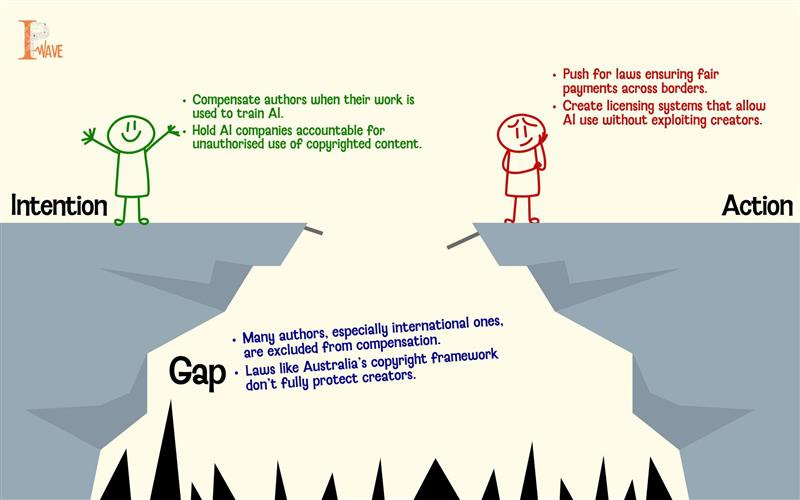Anthropic’s $1.5 Billion Copyright Settlement: A Landmark Moment for AI and Creators
In a case that could redefine the relationship between artificial intelligence and content creators, AI start‑up Anthropic has agreed to a groundbreaking US$1.5 billion settlement in a class‑action copyright lawsuit. Filed by authors including thriller novelist Andrea Bartz and nonfiction writers Charles Graeber and Kirk Wallace Johnson, the suit alleged that Anthropic illegally copied millions of copyrighted books from “shadow libraries” to train its AI models, including the Claude chatbot. If approved by a US federal judge, it would be the largest copyright settlement in US history and a major precedent for how AI companies use creative works.
The lawsuit traced Anthropic’s actions to the acquisition of over seven million books from piracy sites such as Books3, Library Genesis (LibGen), and the Pirate Library Mirror. The company initially downloaded roughly 200,000 books and eventually expanded to more than 7 million works. While training AI models on copyrighted works is not inherently unlawful, US District Judge William Alsup ruled in June 2025 that Anthropic’s use of pirated copies was illegal. Experts warned that without the settlement, statutory damages of up to $150,000 per infringed work could have totalled billions of dollars, threatening Anthropic’s future despite its recent $13 billion funding round.
Under the settlement, authors would receive roughly $3,000 for each of the estimated 500,000 books covered. Anthropic has also pledged to stop using pirated content for training its AI models. The settlement is being described as “an excellent result for authors, publishers, and rightsholders,” highlighting its wider significance for the AI industry and its message that creators deserve compensation when their work is used without permission.
Global Implications and Australian Concerns
The settlement has already drawn global attention. The Australian Publishers Association and the Australian Society of Authors have urged the government to ensure that creators are compensated fairly, arguing that AI firms should not profit from unauthorised use of copyrighted works.
Still, gaps remain. Only works registered with the US Copyright Office within a certain timeframe are eligible for compensation, meaning many international authors, including Australians, may miss out. Advocates are calling for new laws that mandate ongoing payments to creators whose work is used in AI training, ensuring fair compensation across borders.

The Wider AI Copyright Landscape
Anthropic’s settlement is part of a growing wave of legal scrutiny over AI training practices. Meta’s AI model Llama 3 has come under fire, with internal documents revealing that the company heavily relied on pirated content from LibGen, which hosts over 7.5 million books and 81 million research papers. Meta employees reportedly received permission from CEO Mark Zuckerberg to use the dataset.
Meta considered licensing books but abandoned the effort because it was deemed “unreasonably expensive” and slow, with delivery times exceeding four weeks. Internal discussions noted medium-to-high legal risks, with attempts to reduce exposure by removing ISBNs and other identifying markers. Millions of files were downloaded via BitTorrent, a method that risks redistributing pirated content.
LibGen’s collection includes works by acclaimed authors such as Joan Didion, Sally Rooney, Percival Everett, Hua Hsu, Jonathan Haidt, and Rachel Khong, along with academic articles from Nature, Science, and The Lancet. Despite repeated lawsuits, LibGen continues operating. Elsevier won a $15 million injunction in 2015, and a group of publishers including Macmillan Learning and McGraw Hill secured a $30 million damages award in 2023, both largely unenforced.
Apple is also facing a class-action lawsuit. Authors Grady Hendrix and Jennifer Roberson claim that the tech giant used pirated copies of their books to train its OpenELM large language models. Microsoft and OpenAI face similar cases. These lawsuits expose growing tensions between AI’s reliance on vast datasets and the rights of authors whose work is used without permission.
Balancing Innovation with Rights
For authors worldwide, the settlement offers hope for tangible financial recognition, but also raises critical questions about access, licensing, and ethics in AI training. Experts acknowledge that while pirated libraries increase access to books and academic research, AI companies profit from these works without proper attribution or compensation. The Anthropic settlement could be a turning point, encouraging licensing frameworks that protect authors while still enabling the development of AI.
As governments and courts navigate these challenges, the central issue remains: how to foster AI innovation while ensuring creators are fairly compensated and protected. The case stands as both a warning and a potential blueprint for the future of copyright in the era of AI.

